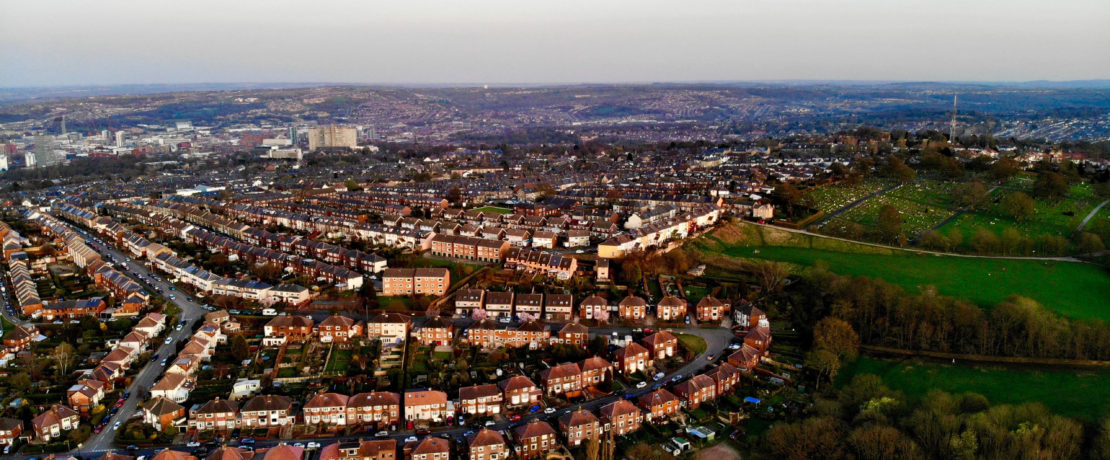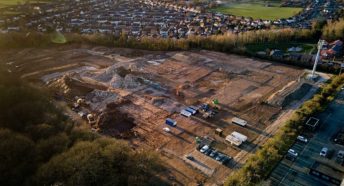What are NDMPs and how will they affect local democracy?
As the Levelling-up Bill makes its way through Parliament, local planning democracy is under threat. CPRE is urging the government to ensure that local democracy is protected when it comes to planning decisions.
What is a National Development Management Policy (NDMP)?
An NDMP is a policy or policy principle about how land is used in England. Set by the levelling-up secretary, they cover planning decisions that apply regularly in decision-making across England. NDMPs are a cornerstone of the planning reforms making their way through parliament in the Levelling-up and Regeneration Bill.
There are two clauses in the bill that concern CPRE. They both relate to how NDMPs will take precedence over local and neighbourhood plans (where they conflict with national policy). These clauses currently prioritise NDMPs over local plans, with no minimum guarantees on public consultation and parliamentary scrutiny. This means that the government can impose top-down planning policies on local communities without challenge.
This approach centralises policy-making, contrary to the aims of the Localism Act. It also reduces transparency and local participation in plan-making. With these reforms, local development plans are in effect secondary to what national policies are at the time (which may change according to the political agenda). We’re urgently calling for amendments to these clauses to ensure local people are heard and that NDMPs are open to scrutiny.
Plan-making
Local plans are important to thinking about NDMPs. These are plans set out by local planning authorities across England and determine what can be built and where in these areas. Local people have an opportunity to be involved in the development of their local plans, which is an important part of local democracy. This process has underpinned the English planning system since the Town & Country Planning Act 1990.
In addition to this, the Localism Act (2011) introduced Neighbourhood Development Plans (NDPs). These provide an opportunity for people to set out priorities for their area. Once ‘made’, NDPs form part of the council’s development plan and has the same weight as the local plan.
Housing is a big element of local plan-making, but plans provide policy and guidance for all aspects of development. Strong local plans take into account the varying needs of local communities, such as food and farming, energy, affordable housing and access to green spaces. They should also protect natural capital (soil, air, water, etc) and address the climate emergency.
Crucially, local plan-making enables local communities to shape what happens in their area. However, reforms in the Levelling-up Bill would prioritise NDMPs over this process, blocking public and parliamentary scrutiny.
What adds further complexity to the matter is how and where NDMPs could sit in the National Planning Policy Framework, which we’ll come to next.
National Planning Policy Framework (NPPF) and National Policy Statements (NPSs)
We know, two more acronyms! We already have nationally determined policies when it comes to planning in the National Planning Policy Framework (NPPF). The NPPF provides guidance for consideration when determining planning applications in local areas. However, the NPPF is by definition, a framework. It is non-statutory (not written into or controlled by law) – and intended simply to be a strong material consideration in making decisions.
It’s reasonable to assume that some of the policies in the NPPF may ‘evolve’ into NDMPs. This means the policies could move away from just ‘material considerations’ to something that the government can impose on local plans without challenge or scrutiny.
Then there are National Policy Statements (NSPs), enshrined in law in 2008. These are policies set out by government which are open to parliamentary scrutiny. It is unclear how NSPs will interact or relate to NDMPs.
NDMPs – the good and the bad
NDMPs can in principle be a good thing. Ministers can use them to set ambitious targets in important areas such as energy efficiency and net zero. These policies can, in theory, be quickly implemented while local authorities focus on more specific, local planning matters.
In the best case, NDMPs could enable development standards to improve more quickly – for example on carbon performance, space standards, reducing car-dependence and light pollution. This is because planning authorities would be actively encouraged to raise their standards rather than simply looking to meet quantitative development targets.
But, many people are at best concerned – and at worst furious – about the potential to negatively exploit NDMPs. As part of a CPRE poll, more than 8 out of 10 local councillors think that NDMPs will erode local democracy. There’s not even strong support among Conservatives, with only 6% believing NDMPs would enhance local democracy.
Without amending clauses 86 and 87 of the Levelling-up Bill, NDMPs represent a worrying and cleverly disguised power grab by government. It means that government ministers (with an ear to their influential party donors) will have more say on what happens on a person’s street than their locally elected councillors. We have already witnessed an acceleration of countryside loss for development. We see NDMPs without public and parliamentary scrutiny as a genuine threat to our rural places and democracy.
Why NDMPs are at odds with local plans
NDMPs can be rigid, inflexible and undermine local planning contexts. England has iconic and distinct rural landscapes, towns and villages. But NDMPs could lead to more ‘could-be-anywhere’ houses popping up in inappropriate environments, or councils being prevented from building affordable or sustainable developments. Either way, it risks local contexts being undermined by powerful undemocratic interests. There are many case studies which illustrate this point, and why one-size-fits-all approaches to planning do not work.
Swale Borough Council has been unable to set a higher figure for Biodiversity Net Gain (BNG) than the government’s mandated 10% figure. There’s also Reading Borough Council which, despite its buoyant housing market, has not been able to increase their affordable housing targets (despite being able to) due to national planning policy. Greater Manchester’s ‘Places for Everyone’ Joint Development Plan has just been examined and the nine local councils have painstakingly set out overarching development management policies to steer planning policies to improve local circumstances. However, NDMPs could overrule these. Other councils have had net zero housing targets blocked and there is concern about whether the Future Homes Standard is at risk of being replaced by NDMPs.
What CPRE is doing
It’s vitally important that local people and parliament can scrutinise policies and proposals when it comes to planning. Local plans currently involve considerable public participation. But, if the bill remains unamended, NDMPs will quash this democratic process. That’s why we’ve written a closed letter to the secretary of state calling for an amendment to clause 86 and 87 of the Levelling Up Bill. We want to ensure that primary legislation includes public consultation and parliamentary scrutiny.
Our research as shown that NDMPs clearly don’t have the support of local councillors. They represent a significant centralisation of power of what happens in local areas. If you want to help, you can email your MP here and ask them to sign our closed letter before 9 June. If enough of us speak out, we can stop this attack on local democracy.









